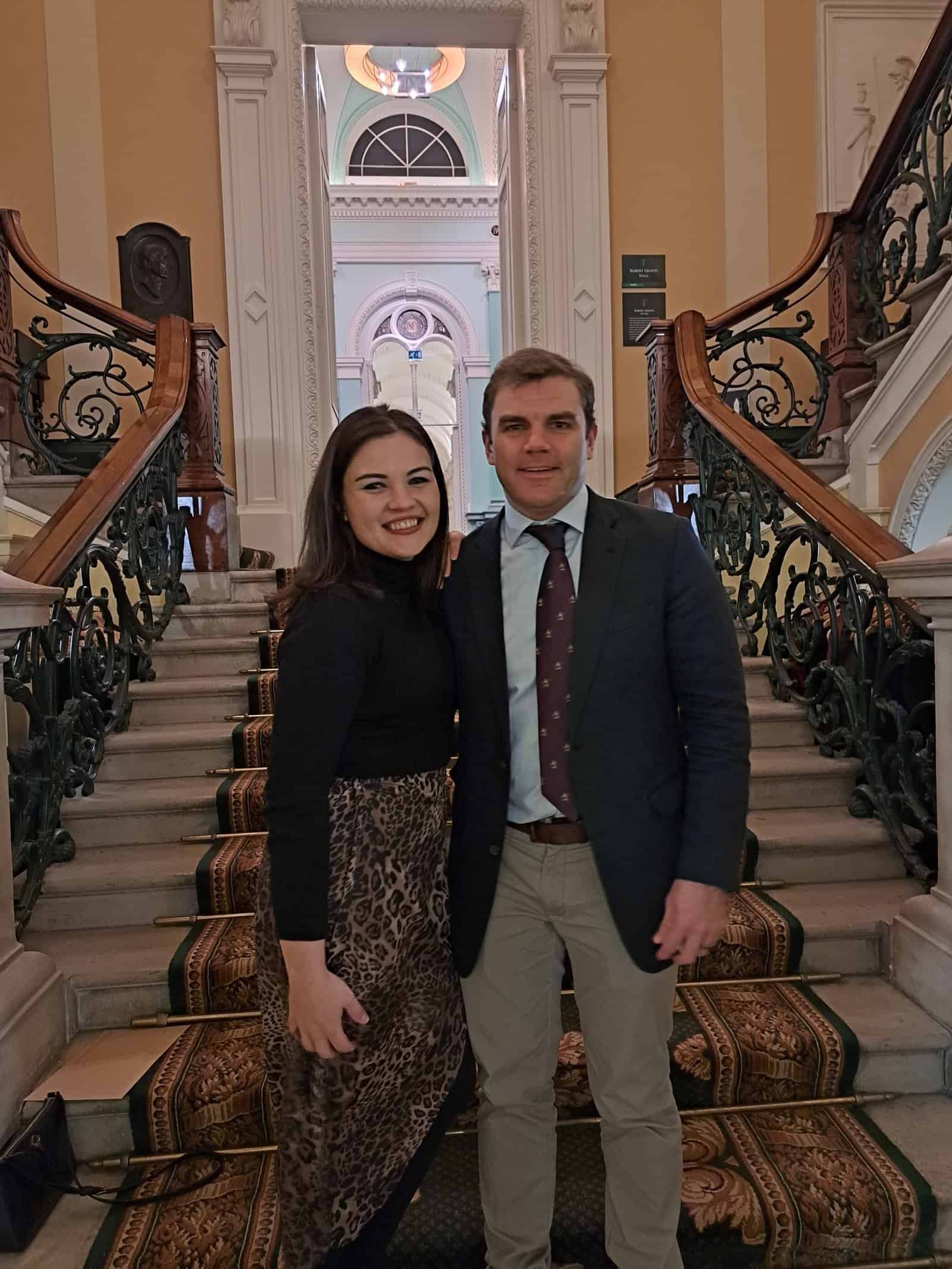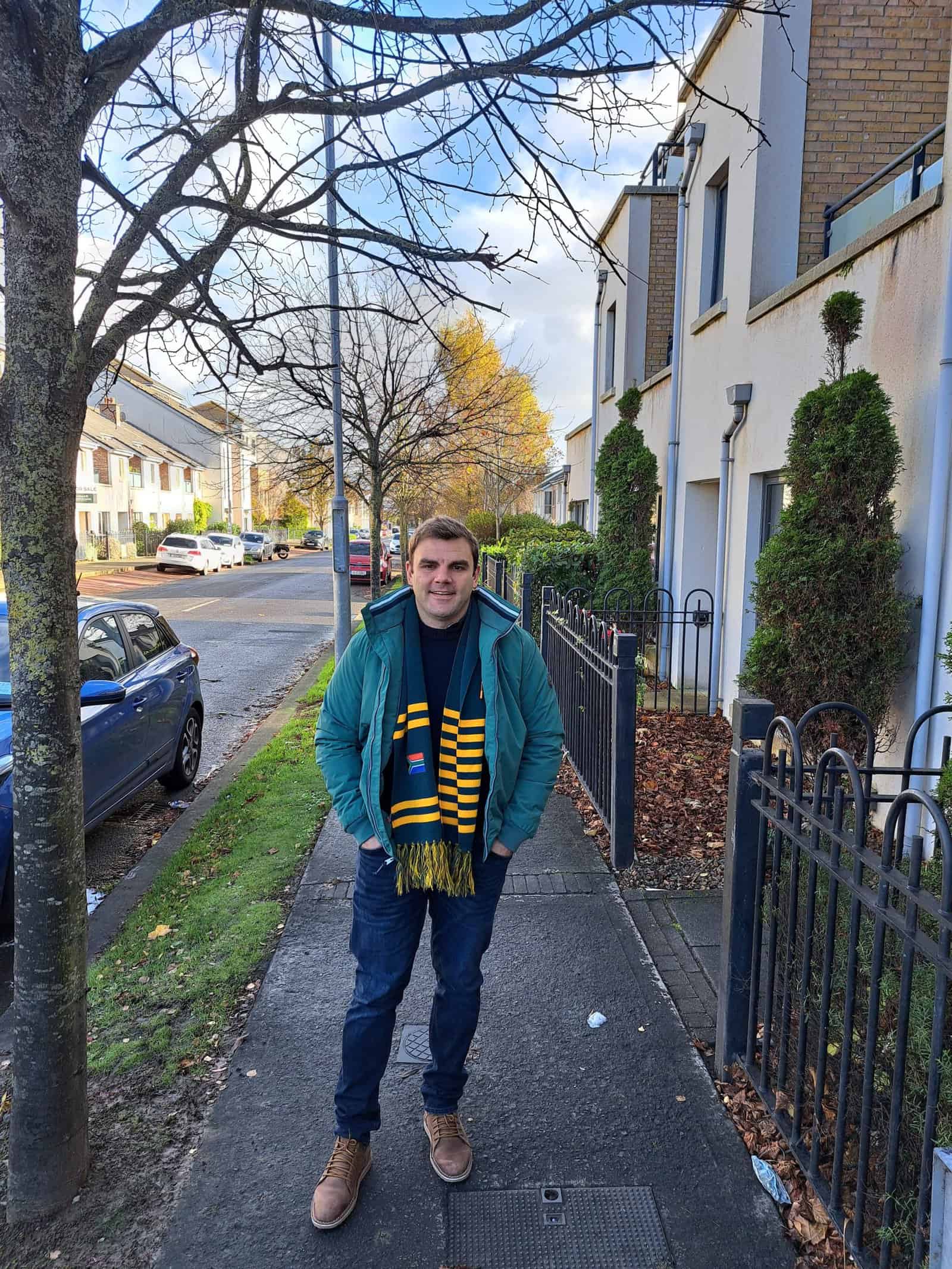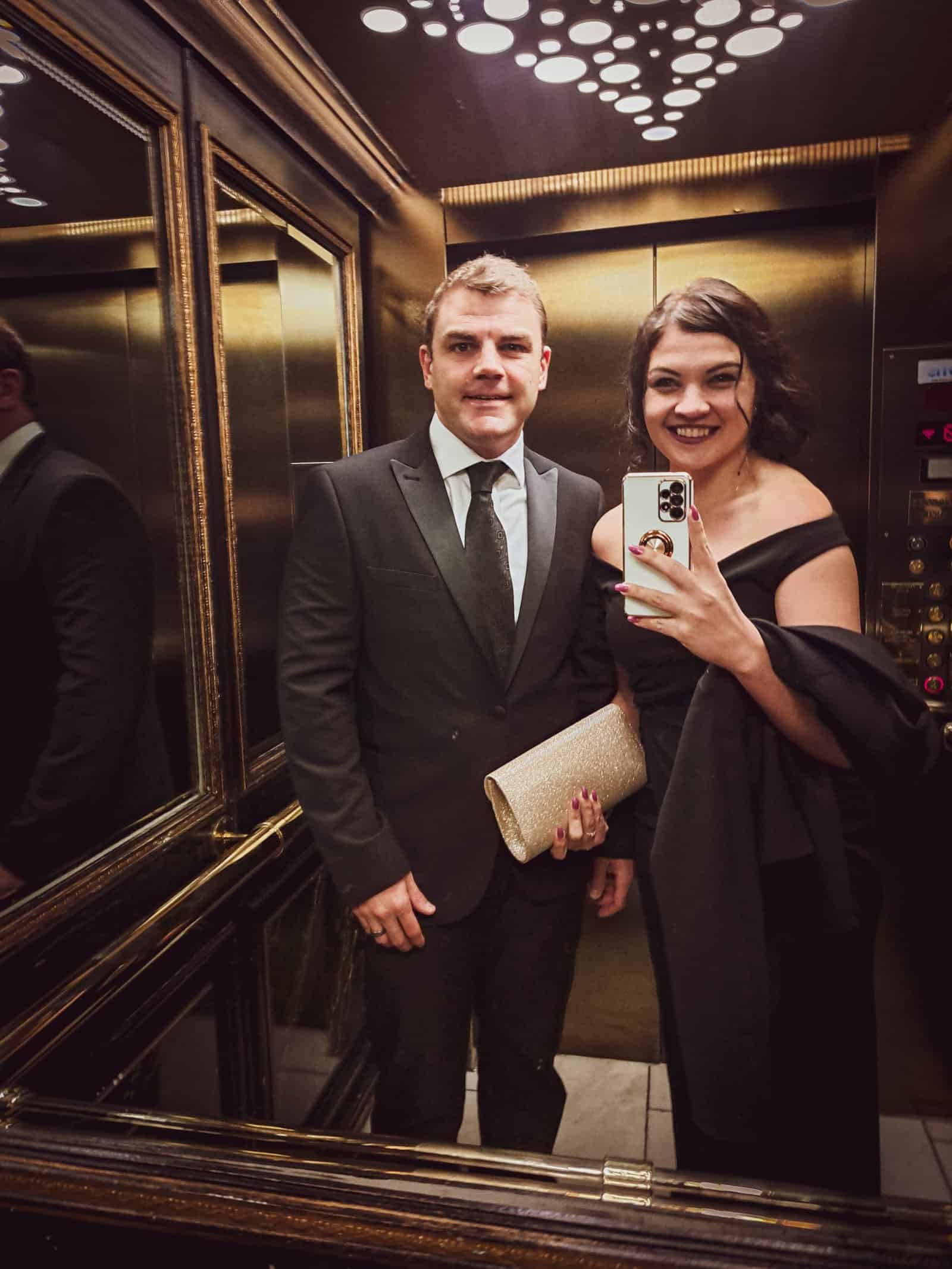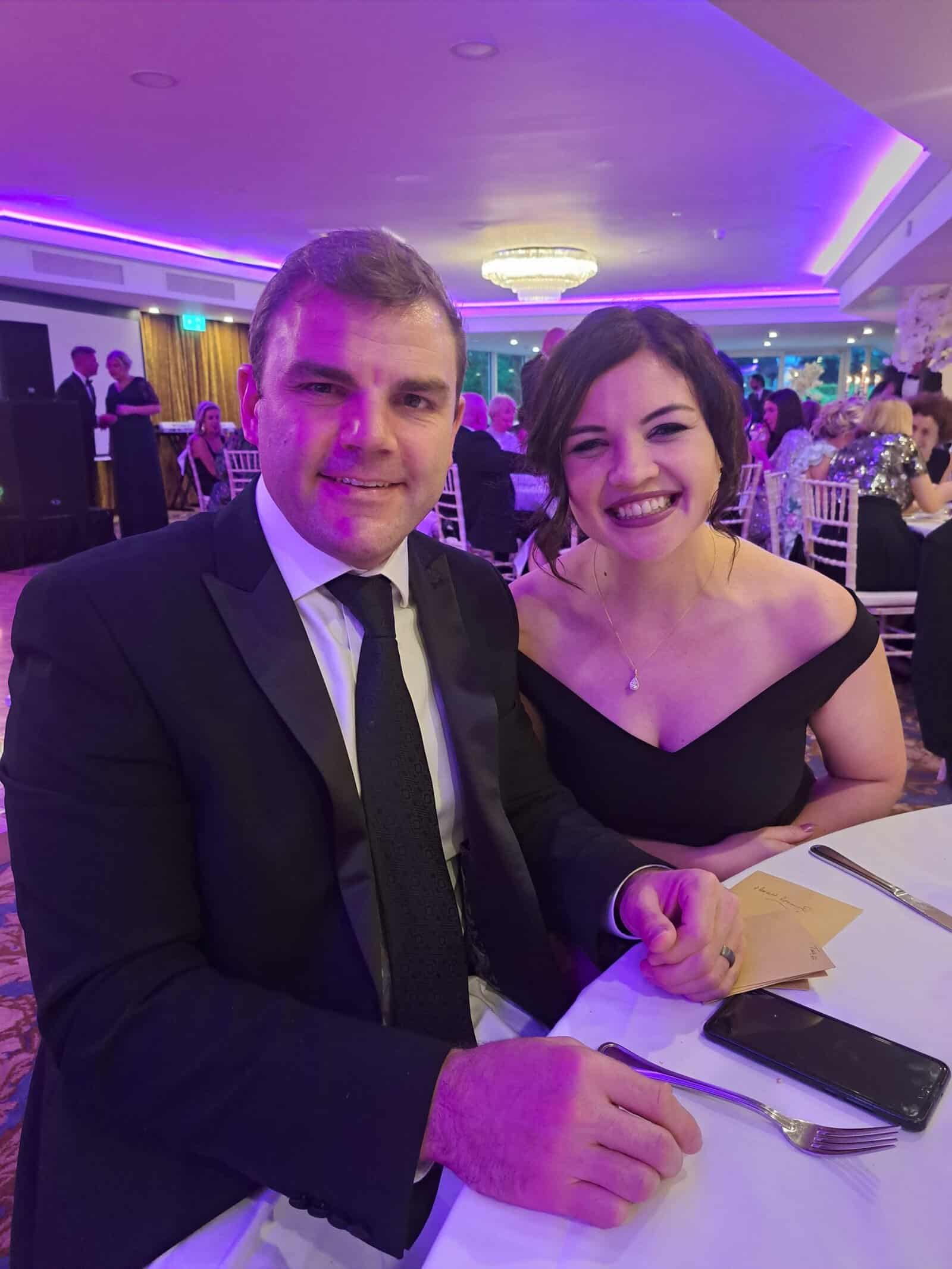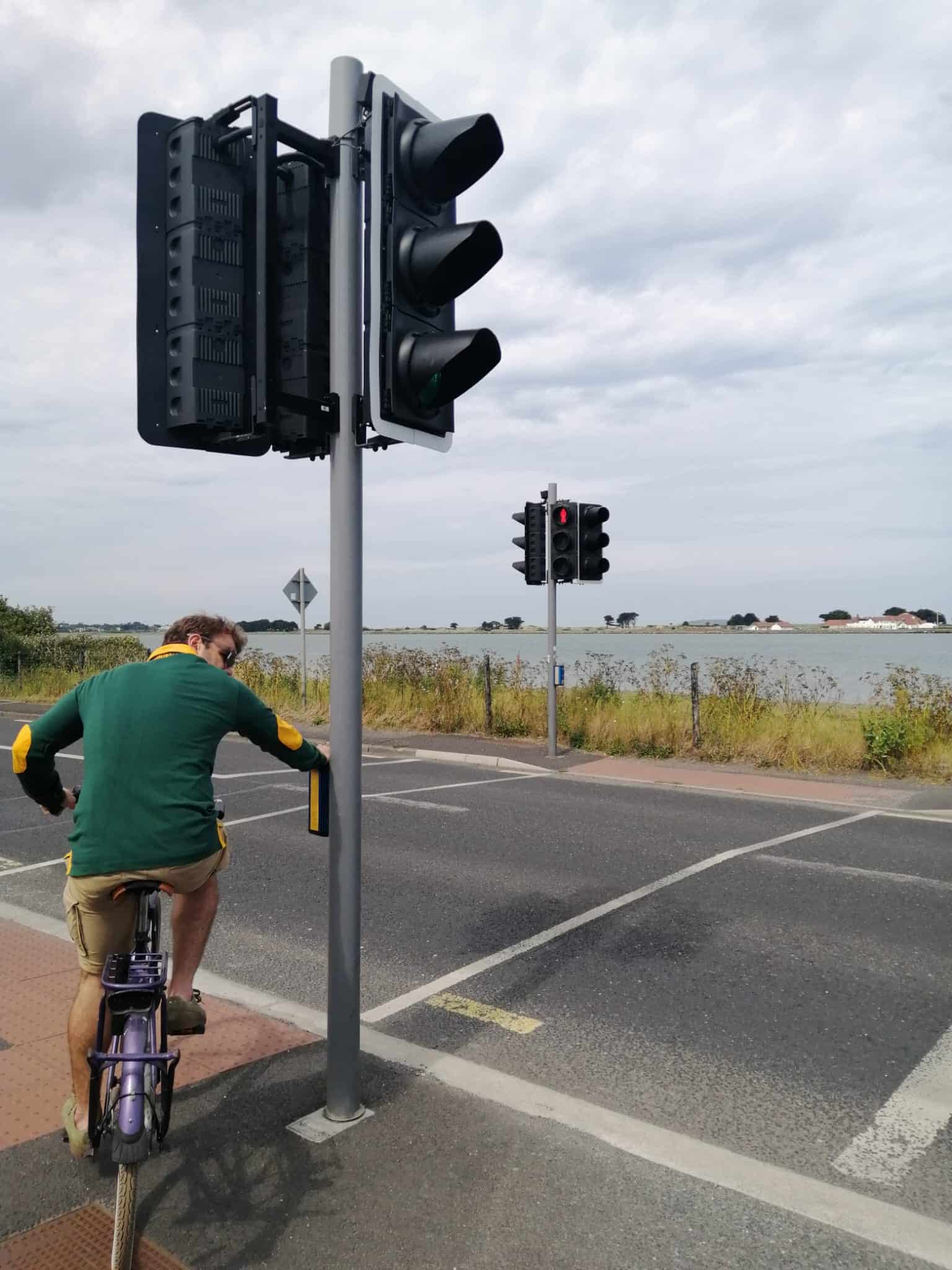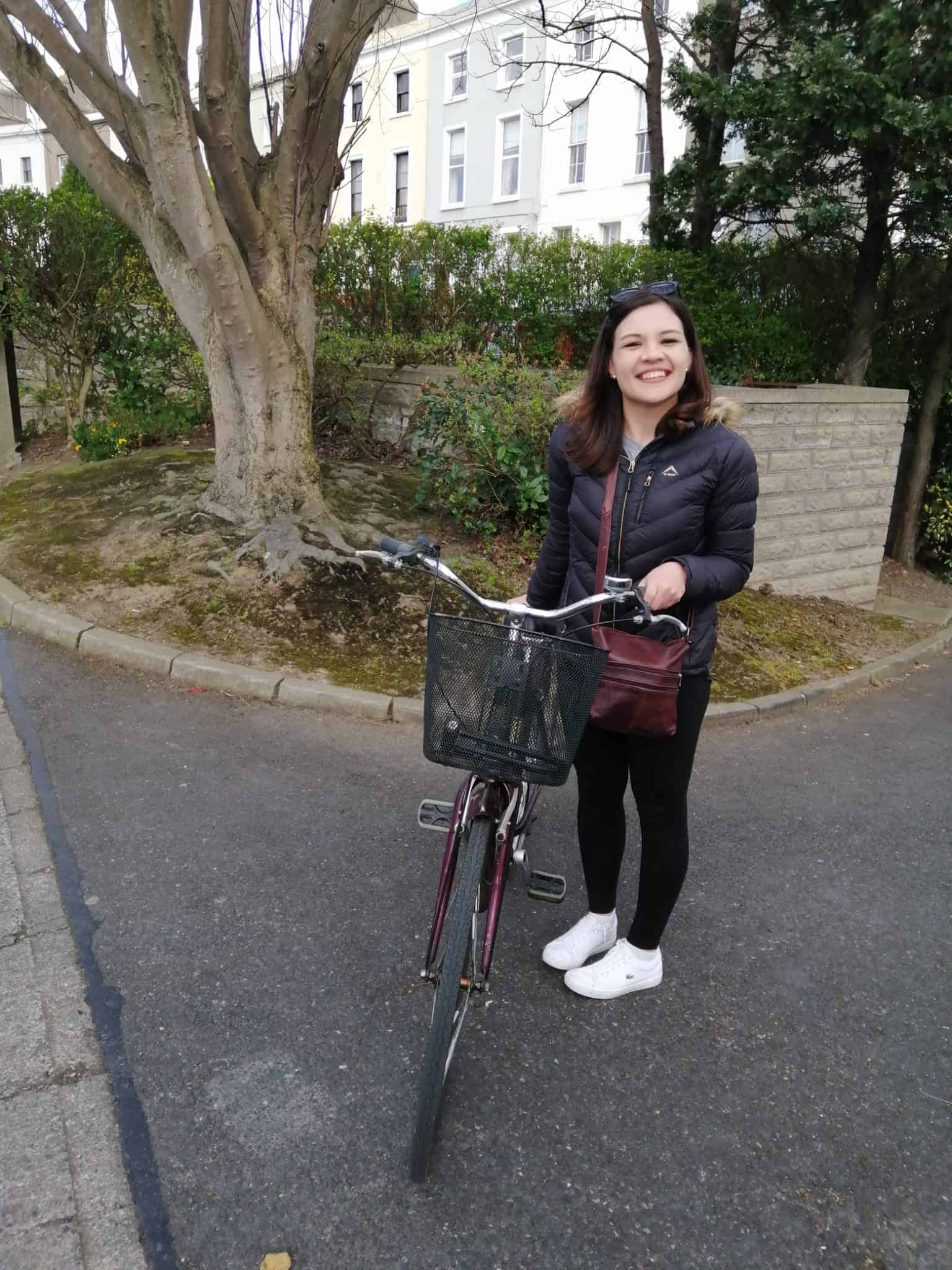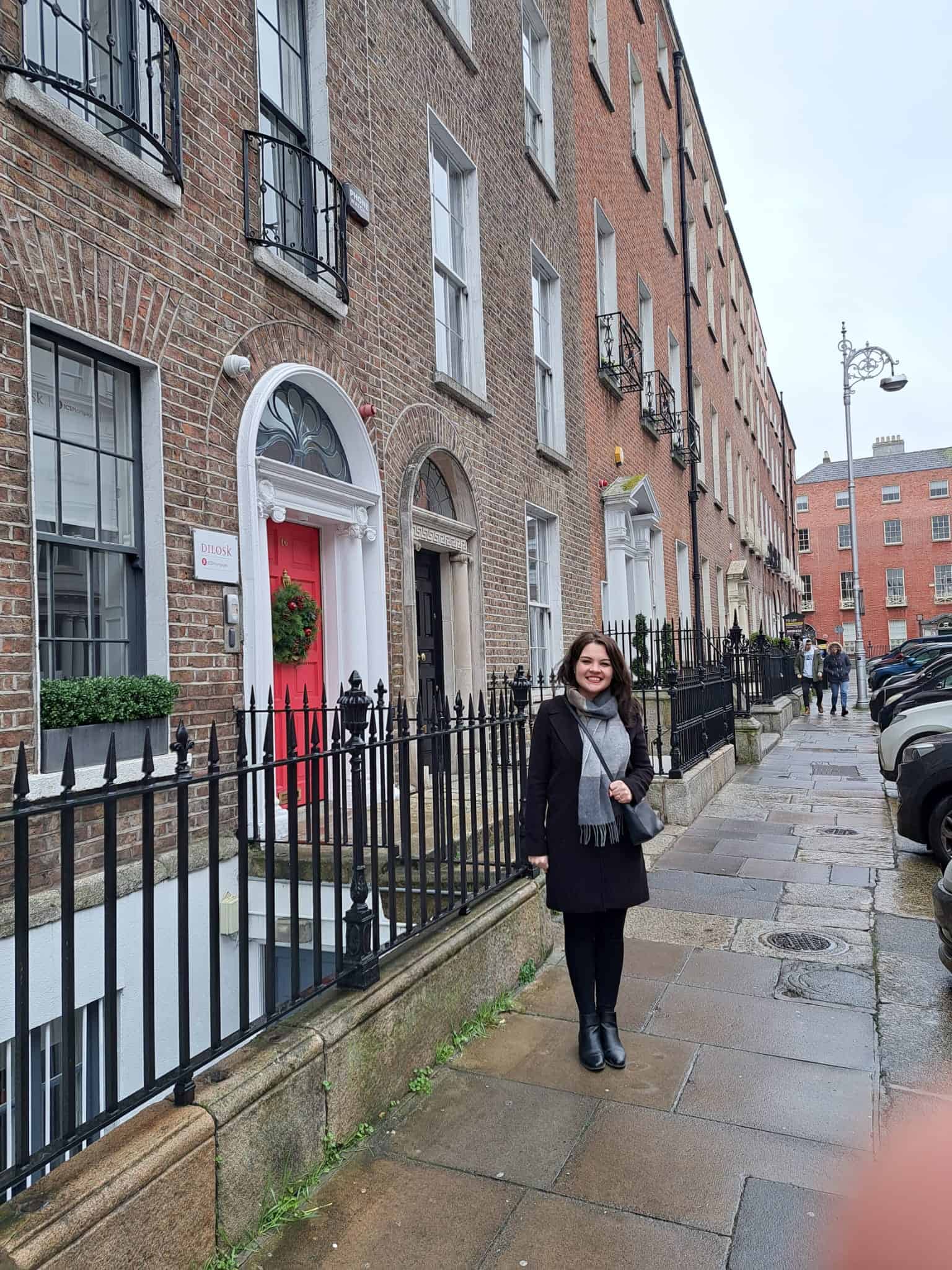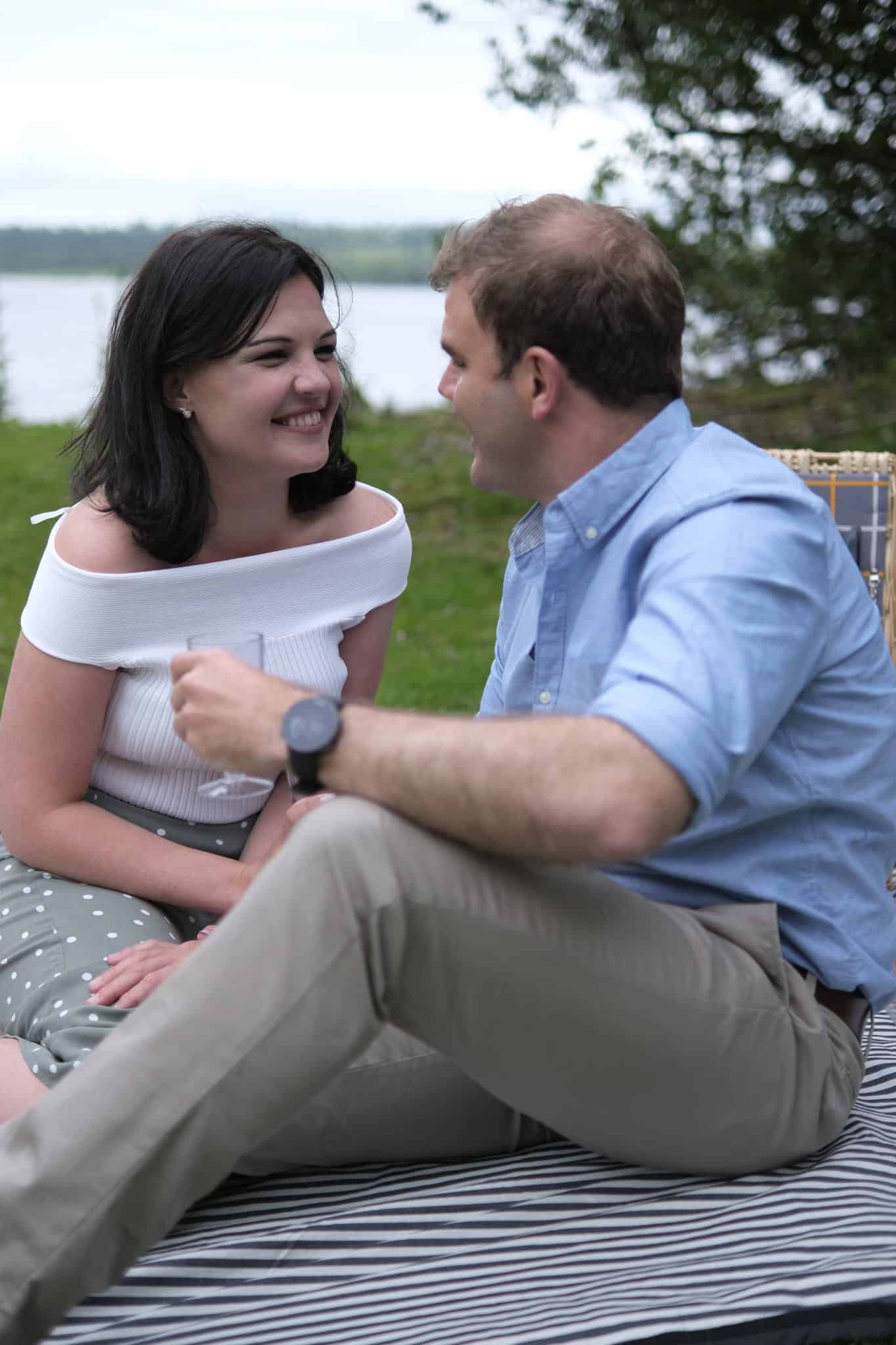In Out and About, we talk to people who currently live abroad or have lived and worked there. We would like to hear from anyone who wants to share their experiences with us. This week, we talked to Gerhard van Eeden who lives in Ireland.
Hello, Gerhard. From where in South Africa are you and why did you decide to move to Ireland?
I am originally from Uitenhage in the Eastern Cape, and my wife, Marilé, is from Harrismith in the Free State. We both worked for the same Big-4 firm and came to Ireland separately for work experience and travel opportunities. We only met here in 2019. It’s a beautiful story, a type of miracle. We both studied at the North-West University in Potchefstroom. I am two years older than Marilé, so our time there overlapped somewhat. We have many mutual acquaintances but never met each other. Both our fathers are ministers, so we grew up similarly. We arrived here as two strangers intending to stay a year or two. Then we found each other in Dublin, and the rest is … well, history.
What was the biggest adjustment for you abroad? Was it a culture shock?
Actually, there’s not much difference between the Irish and the South Africans. There are cultural differences, but there are many more similarities. For me, the most significant cultural difference is the fact that everyone here only starts working at 09:00 in the morning. The schools also only begin then. As a result, people work later in the evenings and rarely leave work before 18:00. I like to get up and start my day early, so I had to get used to this. However, I quickly learned to do a lot in the morning before work, and now I get much more done.
What kind of work do you do, and how does the work culture in Ireland differ from that in South Africa?
I am a chartered accountant and work in the Dublin office of an American private equity asset manager. I am part of the European finance reporting team. Marilé studied business mathematics and informatics and did her master’s degree in quantitative risk management. She works at the European headquarters of one of the largest American technology companies here in Dublin. She is on the team responsible for the overall global credit strategy and risk management regarding the company’s income.
Except for the late start of the working day, the working environment here is much more international and multicultural. We can sit around a table on any given day with people from up to 10 different countries. It’s stimulating and exciting, but you must learn quickly to accept and work with cultures and customs.
How do Ireland’s lifestyle and cost of living differ from that in South Africa?
Although public transport in Ireland is not the best in Europe, people use it a lot. Buses, trains and trams run all day. Many people also cycle to work, and you can walk to many places. There is an active outdoor life when the weather permits. People also love their dogs and take them for a walk every day. Then they have coffee along the road and stop to chat with acquaintances. There is a feeling that you are part of a community you don’t experience elsewhere. The cost of living is high, but so are the salaries. In Europe, there is less inequality in income than in South Africa. Housing is indeed very expensive and rare, and it is a long and challenging process to buy a house in Ireland.
Did you struggle to adjust to Ireland’s climate?
The truth is that Ireland never is that cold and doesn’t get as much rain as the west of the country, especially here in Dublin, where we live. Bloemfontein winters definitely are much colder than most winter days in Dublin, and it’s certainly not as cold in Ireland as in America and Canada. The cloudy winter days sometimes get you down, but there is always a sunny day in between, and the summers are very nice. We barbecue a lot in our garden and get outside a lot. The most important thing for winter is a warm, waterproof hoody jacket. Umbrellas don’t help much because the wind bends them over within the first week in February.
What interesting facts about Ireland have you discovered that you didn’t know before?
There’s much to mention here, and we’re still learning daily. The Irish are very witty. For example, they often say, “It’s grand.” (All right.), “Good craic.” (Good times.), or “It’s gass/class.” (That’s good.) We learn new things about them all the time. They have 32 counties, like our provinces, and people are very proud of where they come from. The Irish accent is lovely and differs as one moves around the country. You constantly learn new things about them and see the similarities and differences with South Africans. It is only when you live among the Irish every day that you can see all these things. A short vacation is not enough time to experience and appreciate the people. We have to admit that the Irish are very engaging and friendly. And because South Africans speak English with such a lovely accent, we resonate well with them. We often hear: “You South Africans have a great accent!” Then they start talking about rugby, and there we go …
There are quite a few South Africans in Ireland. Do you get together sometimes?
We have a good network of South African friends, a few of them close friends, whom we see often. There are many South Africans in our church as well. And yes, our minister is from South Africa! However, we decided to integrate with the community as far as possible and not just stick to South African friends. We are very aware of who we are and only speak Afrikaans at home, but we also have a large circle of Irish friends. We also have close friends from Spain, Italy, Germany, Poland and other countries. We turn down very few opportunities to be involved in the community. We serve at church with the Irish and regularly attend charity functions, concerts and special events in the city. One must be careful not to mix only with one’s own people because you may miss many opportunities to grow and learn.
Tell us about your hobby that recently turned into a business.
We brought a zebra skin for our living room from home. It was not easy to persuade Marilé to accept the skin as a rug, but it is now one of the favourite items in our house. Everyone visiting us always touches the skin and especially the zebra’s ears. It’s really something that stands out. We also love antique furniture, and many of the large pieces in our home have a story. Some we bought at a discount from antique shops and repaired them, and others we got from people who wanted to throw them away. We then put our heads together and decided to combine our love for unique things with our love for South Africa and start a small business as a sideline for fun. Thus, we started Vic & Vee Interiors. “Vic” comes from Marilé’s maiden name “, Victor”, and “Vee” comes from my surname “, Van Eeden”. Now we import Nguni and zebra skins from South Africa. Marilé found a small business in Johannesburg where a woman lost her job during Covid and started making cushion covers from shweshwe material. Now we have already placed a few pieces of South Africa in Ireland! Our house is filled with Afrikaans stuff, and we enjoy the business even though it is only a small hobby that keeps us busy on the side. Some of our skins are now sold in one of our favourite antique shops where the owner has become a good friend. We also started an online store. These things keep us close to South Africa and part of the economy, even if we are far away.
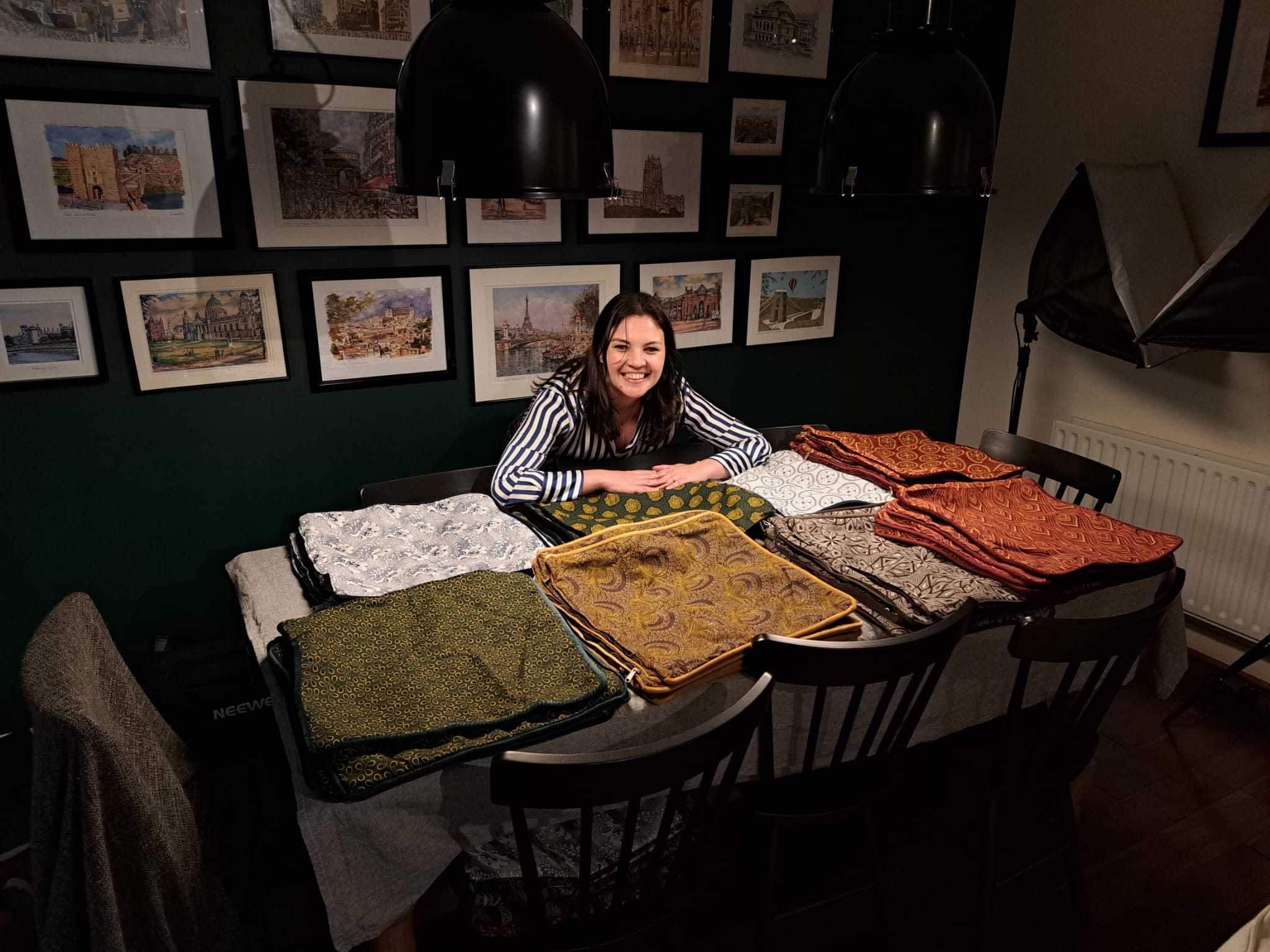
Are there any South African businesses (shops, restaurants, services) nearby that you like to support?
Our parents usually bring us things like Mrs Balls chutney and All Gold tomato sauce, so we don’t put much effort into finding that kind of stuff. But there is one shop, owned by a Moroccan, where we buy Iwisa mealie meal. We love our mealiepap, so we are glad we can get it there. One product we buy almost every week: boerewors made and sold by former Lions rugby player Louis Ludick. He has a good business, and his boerewors is sold in one of the chain store groups here. He lives in Northern Ireland, about two hours from Dublin. Go find Hellbent boerewors. It’s delicious!
What do you miss most about South Africa? What is the one thing you wish you could have packed in your suitcase when you emigrated?
All we really miss are our families, who we would of cause like to see more often. But everything else we need is here, and because we often visit South Africa, we buy everything we like there: Old Khaki shirts, Puma skins and, of course, stuff from all women’s favourite, Woolies.
Did you learn any lessons?
We learned that South Africans are generally above-average people. We are South Africans to the core and were privileged to find each other here abroad, but it is not always easy. Many South Africans think that life is always easy abroad, “where everything works”, and that South Africa and its problems are unique. That’s not true. Every time we return to South Africa, we see the fantastic entrepreneurs, kind people, doctors and businesses that succeed despite all their challenges. Our agricultural industry, banks, private hospitals and many other institutions are among the best in the world. There are very few airports we pass through that work as well as OR Tambo and where the people are as friendly and the service in the coffee shops as good. South Africans must focus on the good things while working to overcome the challenges. Those of us who are abroad must do what we can from this side.
ALSO READ: Out and about: an email from abroad
Write to us
Do you live abroad, or have you recently returned from abroad? Then you too can write us an Out and about column. Send an e-mail to wereldwyd@afriforum.co.za and we will send you questions to answer.
Share on
Latest articles



